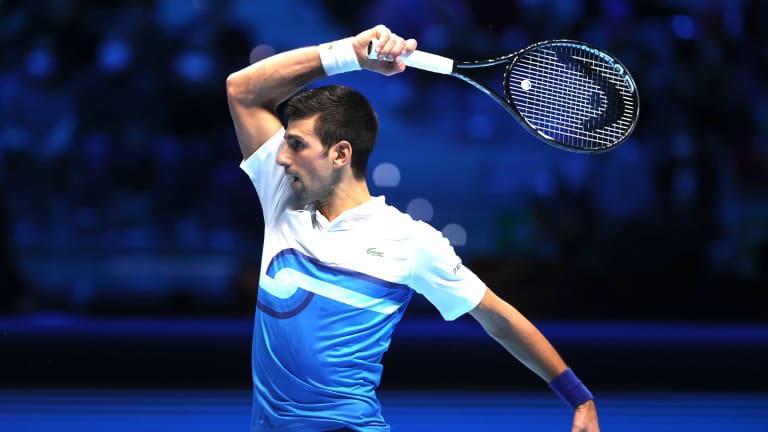When Novak Djokovic kicked off his fall season at the Rolex Paris Masters less than a month ago, he had two goals in mind. “The year-end No. 1 is on the line between Medvedev and myself, and I’m in a pretty good position in terms of the ranking points and the race, so that’s obviously the goal for the end of the season," he said, "other than trying to do well in the Davis Cup with the national team."
Later that week he clinched the year-end No. 1 ranking for a seventh time—the most in ATP rankings history—and now he’s arrived in Innsbruck, Austria, hoping to lead Serbia to Davis Cup glory for the second time, after their 2010 triumph.
It would be a perfect ending to an already historic season that also saw Djokovic win the Australian Open, Roland Garros and Wimbledon, which not only made him the first man since Rod Laver in 1969—18 years before he was even born—to win the first three Grand Slams of the year, but also tied him with Roger Federer and Rafael Nadal for the all-time men’s record for most career Grand Slam titles.
“Well, it was a great season, no doubt,” Djokovic said at the ATP Finals in Turin last week. “I mean, I did not play many tournaments, but still managed to end the year at No. 1 for the seventh time, won three out of four Slams—the year was phenomenal. Maybe could have done better in some other ATP events. But all in all really good ending of the season as well, with a title in Paris and semifinals here.
“I like the way I’m playing. I like my chances against anybody in the Davis Cup, really. I look forward to that. Obviously the Davis Cup is a team competition, it doesn’t depend on me only—we have to try to win another singles or at least one singles, one doubles. Yeah, it’s a team effort. So hopefully the other guys are fit and ready.
"I’m very motivated to play for my country. Let’s hope for the best.”
And Djokovic should like his chances: he’s won his last 15 Davis Cup singles matches in a row, his last loss in the competition coming over a decade ago—a retirement loss to Juan Martin del Potro in the World Group Semifinals in September 2011.
The Serb has also won 22 of his last 23 Davis Cup singles matches since the start of 2010, which was the year Serbia won the event, beating France in the final.
Overall, he’s 34-7 in singles and 3-4 in doubles in Davis Cup competition.
